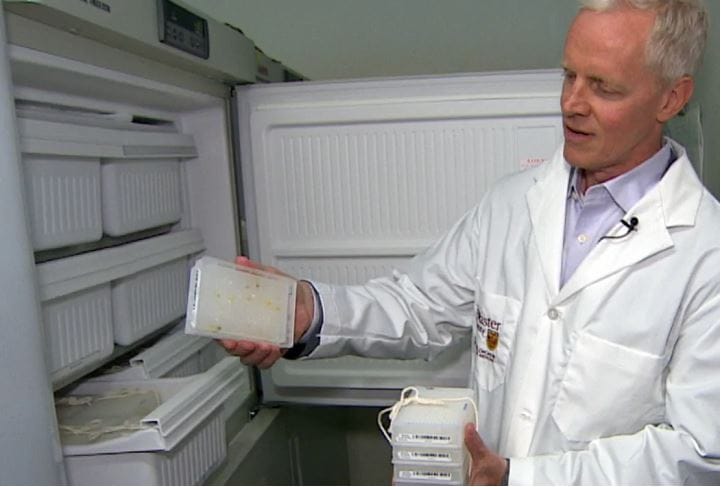
As the world loses its upper hand in the antibiotics arms race, it raises the spectre of untreatable infections resulting from routine surgeries. But a Canadian scientist has discovered a surprising source of potential antibiotic options.
Since the early 1990s, there’s been little progress in the search for new antibiotics. A new one hasn’t been developed in years, partly because the most obvious ones have already been found. Superbug headlines reflect the need for new ways to kill superbugs that develop resistance to antibiotics.
The challenge is bacteria have multiple layers of defence that scientists need to dismantle. That’s where McMaster University scientist Eric Brown’s research comes in. His team is focused on screening thousands of chemicals that are already used to treat other diseases to see if any will work against bacteria. “We kind of pride ourselves in my research group of doing the crazy stuff. Screens that won’t be done say in a pharmaceutical setting,” Brown said.
Minor surgeries are already becoming more dangerous. Last year, researchers writing in The Lancet Infectious Diseases warned that between 39 and 50 percent of bugs that cause infections in surgical sites are already resistant to standard antibiotics. More than a quarter of pathogens that cause chemo-related infections are also resistant. The findings add a sense of urgency to Brown’s work in Hamilton, Ontario.
The advantage of repurposing old drugs to fight bacteria is they’ve already been tested and proven to be safe. The pharmaceutical industry typically takes 15 years to develop a drug. “I think though that we’ve got a chance to shorten the path to the clinic by starting with a lead that is already a drug,” Brown said.



Comentarios recientes